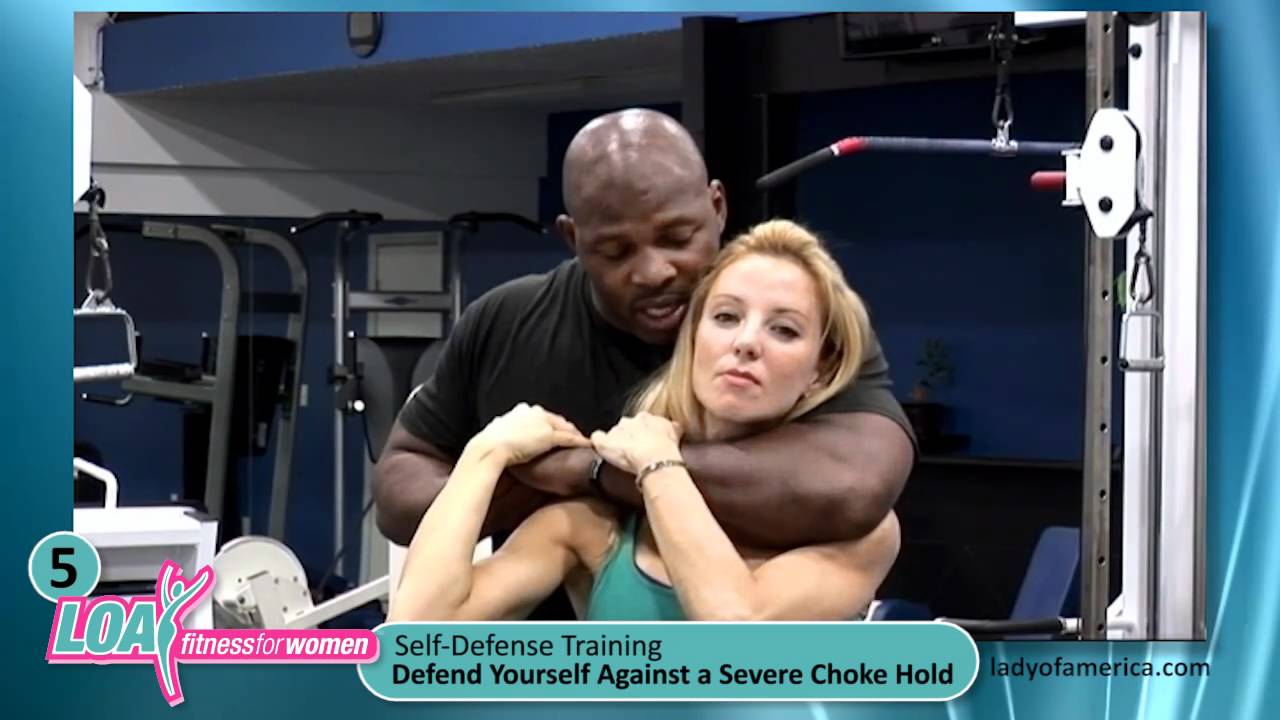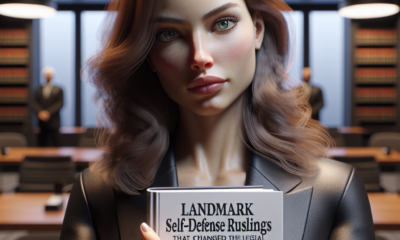Womens Self Defense
Understanding the key self-defense precedents in recent history

Self-defense is a fundamental right that is recognized in legal systems around the world. While the concept of self-defense may seem simple, the legal precedents that define it can be complex and nuanced. Understanding these key precedents is crucial for individuals to protect themselves and their loved ones in dangerous situations.
One of the most well-known self-defense precedents in recent history is the case of George Zimmerman, who shot and killed 17-year-old Trayvon Martin in 2012. Zimmerman claimed he acted in self-defense, as Martin had attacked him first. The case sparked a national debate on race, gun laws, and self-defense. Ultimately, Zimmerman was acquitted of second-degree murder charges, with the jury citing Florida’s “stand your ground” law, which allows individuals to use deadly force if they feel threatened.
Another important self-defense precedent is the case of Michael Dunn, who shot and killed 17-year-old Jordan Davis in 2012 after an argument over music playing in a car. Dunn claimed self-defense, arguing that he believed Davis had a gun, although no weapon was ever found. Dunn was convicted of first-degree murder and sentenced to life in prison without parole. This case raised questions about the limits of self-defense and the use of deadly force in confrontations.
In 2016, the case of Freddie Gray brought self-defense precedents to the forefront once again. Gray, a 25-year-old African American man, died in police custody in Baltimore, Maryland. The six officers involved claimed they acted in self-defense after Gray resisted arrest. However, Gray’s death was ruled a homicide, and all six officers were charged with crimes ranging from second-degree murder to manslaughter. The case highlighted the importance of accountability and proper training for law enforcement officers in using force.
More recently, the case of Kyle Rittenhouse has sparked debates on self-defense and vigilantism. Rittenhouse, a teenager from Illinois, shot and killed two people during protests in Kenosha, Wisconsin in 2020. Rittenhouse claimed he acted in self-defense, arguing that he was being attacked by protesters. While some view Rittenhouse as a hero defending himself and others, others see him as a vigilante who escalated tensions and used excessive force. Rittenhouse was acquitted of all charges in November 2021, further adding to the controversy surrounding self-defense laws.
These key self-defense precedents in recent history highlight the complexities and challenges of defining and applying self-defense in legal contexts. While self-defense is a fundamental right, it is important for individuals to understand the limits of force and the legal criteria that must be met to justify self-defense. By being informed about these precedents, individuals can better protect themselves and navigate dangerous situations with clarity and caution.
Womens Self Defense
Get Empowered: Why Every Woman Should Consider Self-Defense Certification
Absolutely! Let’s dive into the topic. Please provide the article title you’d like me to write about, and I’ll create a detailed piece for you!
Womens Self Defense
Uniting for Justice: Community Organizations Push for Stronger Self-Defense Legislation

Uniting for Justice: Community Organizations Push for Stronger Self-Defense Legislation
In recent years, the dialogue surrounding self-defense laws has grown more complex and critical, highlighting the need for a re-examination of legal frameworks that govern individual conduct during life-threatening encounters. As issues of personal safety, inequality, and the right to self-defense collide, community organizations across the nation are uniting to advocate for stronger self-defense legislation that not only protects individuals but also addresses systemic injustices.
The Current Landscape
Self-defense laws vary widely from state to state, resulting in a patchwork of regulations that can often leave marginalized communities under-protected. Some states have “Stand Your Ground” laws which give individuals the right to use force without the duty to retreat when threatened. Meanwhile, others adhere to more traditional “Duty to Retreat” principles, requiring individuals to avoid confrontation when possible. This inconsistency can lead to unintended consequences, particularly for people of color and those from lower socioeconomic backgrounds, who might be disproportionately criminalized in self-defense situations.
The Call for Reform
In response to these disparities, community organizations are rallying for legislative change. Groups focused on social justice, civil rights, and public safety are coming together to craft proposals aimed at reforming self-defense laws. These advocates argue that it is essential not only to ensure the right to defend oneself but also to create an equitable legal framework that reduces bias in how self-defense cases are prosecuted and adjudicated.
Key Proposals
-
Enhanced Training and Awareness: One significant proposal advocates for mandatory training in self-defense laws for both civilians and law enforcement. Understanding the legal implications of self-defense can empower individuals to make informed decisions during high-pressure situations.
-
Bias Review Measures: Community organizations are pushing for legislative measures that require law enforcement to undergo training on implicit bias and the historical context of self-defense laws. This could mitigate the risk of racial profiling and ensure that self-defense claims are evaluated fairly.
-
Legal Support and Resources: Providing legal resources and support for individuals who defend themselves can help level the playing field. Advocates suggest establishing funds or programs that can assist with legal fees for those who may not otherwise afford representation in self-defense cases.
- Community Dialogues: Engaging community members in discussions about self-defense can foster better understanding and cooperation. Organizing community forums to discuss individual rights, responsibilities, and personal safety can build trust and provide critical information.
Building Coalitions
Collaboration is at the heart of this movement. Organizations with differing focuses—such as gun rights advocates, domestic violence shelters, youth mentorship groups, and racial justice organizations—are finding common ground in the belief that self-defense is a fundamental right that must be accessible to everyone.
These coalitions are also crucial in countering misinformation about self-defense laws and their implications. By working together, they can foster a more informed public debate and promote legislation that is both just and effective.
The Path Forward
As these community organizations continue to push for stronger self-defense legislation, the conversation around justice, equity, and individual safety remains crucial. Advocates emphasize that any reform must be carefully crafted to protect the rights of all individuals while also addressing the underlying societal issues related to violence and safety.
In conclusion, the united effort of community organizations in advocating for stronger self-defense legislation reflects a growing commitment to justice that transcends traditional divides. By prioritizing equity and informed discourse, these groups are not only advocating for change in the law but are also championing the dignity and safety of every individual in society. The path to reform may be arduous, but the collective action of committed organizations can drive meaningful change in ensuring that self-defense rights are upheld for all.
Womens Self Defense
Self Defense Training For Women In A Bar Scene Or Walking The Mall — Lady Of America

http://www.ladyofamerica.com This is the last of the Lady of America Fitness for Women self defense training videos. This video is …
source
-

 Womens Self Defense11 months ago
Womens Self Defense11 months agoNew Legislation Empowers Women to Defend Themselves
-

 Self Defense News1 year ago
Self Defense News1 year agoShe was convicted of killing her abusive boyfriend. Now a Maple Grove woman is home awaiting a new trial.
-

 Self Defense News1 year ago
Self Defense News1 year agoSelf-Defense for All: The new Gracie Jiu-Jitsu Pasadena is for everyone | Online Features
-

 Womens Self Defense1 year ago
Womens Self Defense1 year agoTop 5 Self-Defense Techniques Every Woman Should Know
-

 Womens Self Defense7 months ago
Womens Self Defense7 months agoUnderstanding State-by-State Variation in Self Defense Laws
-

 Womens Fitness1 year ago
Womens Fitness1 year agoXtreme Bodyweight HIIT (Lots of Jumping!) | Joanna Soh (Fio Series)
-

 Womens Preparedness1 year ago
Womens Preparedness1 year ago10 essential skills for surviving in the great outdoors
-

 Womens Preparedness1 year ago
Womens Preparedness1 year agoEmpower Yourself: A Guide to Female Survival Planning



